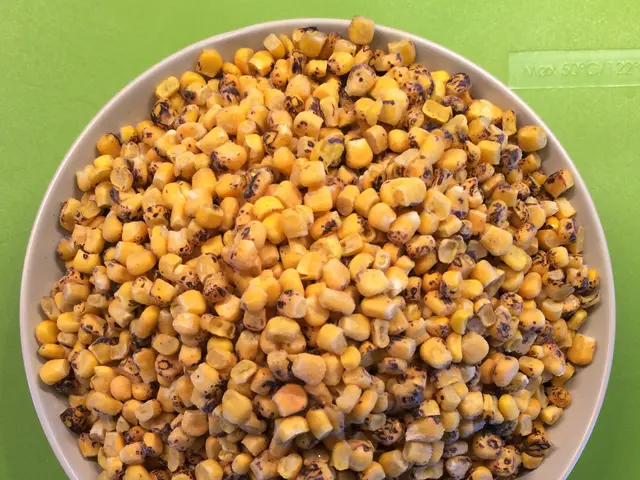Adequate Nutrition Key to Optimizing Running Performance
Optimal Nutrition for Your Run: What to Consume Prior, During, and Post Exercise
Optimizing one's diet is crucial for runners, whether they are training for marathons or simply logging miles for exercise. Consumed poorly, food can lead to discomfort ranging from bloating to exhaustion, and even cause mid-run interruptions. Fortunately, with thoughtful meal planning that adheres to the principles of timing, nutrition, and body listening, runners can create a personalized meal plan that complements their running routine.
Pre-Run Meals: Enhance Performance and Prevent Energy Depletion
Fueling the body before a run is important for generating additional energy, improving performance, and preventing burnout during extended runs. According to registered dietitian Karissa Culley of UW Medicine, pre-run meals should be carbohydrate-rich, ideally consumed 2-3 hours prior to running. Meals can consist of simple carbs like white toast and white potatoes, as well as complex carbs such as whole grains and fruit. For early-morning runs, settling for a smaller meal, like a banana with peanut butter, is recommended 30 minutes before hitting the pavement. Some recommended pre-run meals are:
- Oatmeal with cinnamon and jam
- Granola with berries and yogurt
- Toast with peanut butter and banana
In-Run Nutrition: Fueling for Longer Distances
If a run exceeds an hour, it's advisable to consider mid-run fueling options. Aim for approximately 60 grams of carbohydrates per hour of running, comprised of 80% glucose and 20% fructose to provide quick energy without irritating the digestive system. Simple carbohydrates are the best choice, as they are swiftly digested and offer an immediate energy boost. Recommended in-run snacks include:
- Fruit snacks
- Sports gels, chews, and drinks with carbohydrates, such as coconut water
- Pouches of pureed fruit, like applesauce and banana
Post-Run Meals: Repair and Replenish
Post-run meals should include protein for muscle repair and replenishment of carbohydrates used during exercise. In the first hour after a long run or race, consume foods high in complex carbohydrates to aid in recovery. Aim for 20 grams of protein and around 60 grams of carbohydrates, including complex carbohydrates. Some post-run meal options are:
- Chocolate milk
- Smoothie with fruit and protein powder
- Complex starches like sweet potato, brown rice, or whole grain wraps with protein and grilled vegetables
Avoiding Runner's Trot
Exercise can sometimes negatively impact the digestive system, leading to diarrhea and constipation. This phenomenon, commonly referred to as runner's trots, can be uncomfortable. To mitigate this issue, consider gut training by practicing running with small amounts of food in one's stomach. This will help foster tolerance for consuming food during a run. Start with a sports drink containing carbohydrates to simulate the feeling of a full stomach, then gradually experiment with adding foods while running. Consistency is key when implementing this practice. Furthermore, avoiding caffeine, spicy foods, and high-fiber meals before or during a run can lessen the risk of runner's trots, as can following a low-FODMAP diet for those with irritable bowel syndrome (IBS). Lastly, reducing stress is recommended as it can help alleviate any nervous bowel movements brought on by the gut-brain axis. Ultimately, the goal is to listen to one's body and select food that gives energy and feels comfortable.
"If you can tolerate Pop-Tarts but can't tolerate sports gels, consume the Pop-Tart," advises Karissa Culley. "As long as you can tolerate it, consume it. Do what works for you and be consistent."
- Aging runners might find that their dietary needs change, necessitating adjustments to their meal plans to optimize performance and support healthy aging.
- Science has shown that incorporating exercise, alongside a balanced diet rich in complex carbs, proteins, and healthy fats, can contribute significantly to overall health-and-wellness and fitness-and-exercise lifestyle.
- Nutrition plays a pivotal role in maintaining a balanced lifestyle, as consuming the appropriate foods for pre-run, in-run, and post-run fueling can lead to enhanced performance, energy, and recovery.
- Aging runners might benefit from avoiding processed foods referred to as 'food-and-drink', opting instead for whole foods that provide essential nutrients for promoting longevity and promoting a healthy, active lifestyle.








